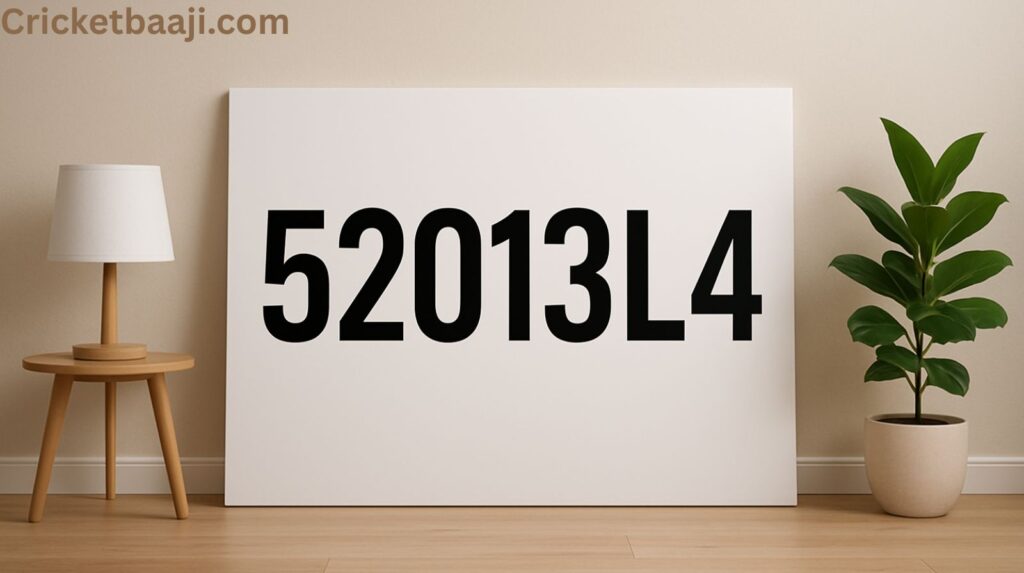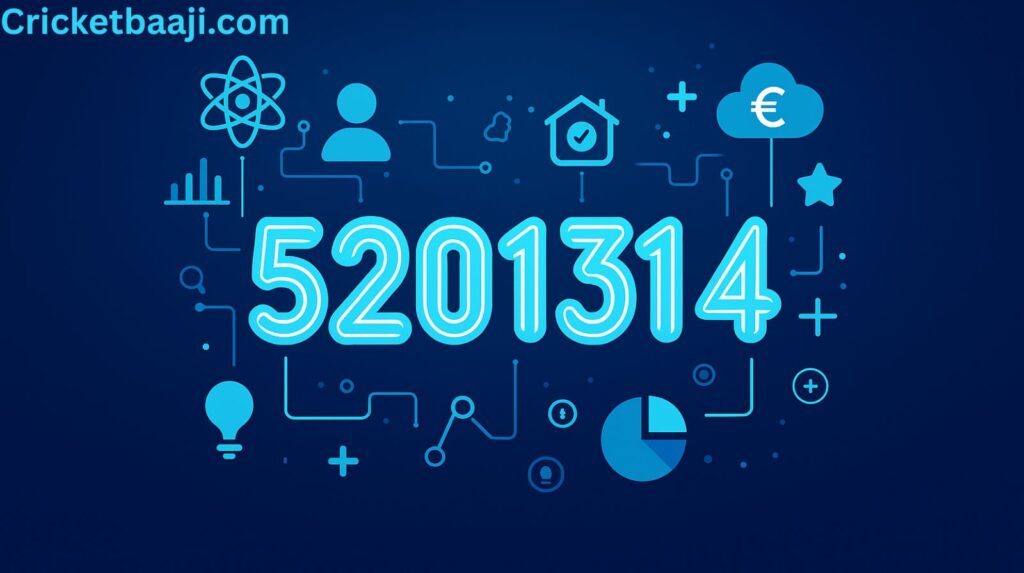52013l4 Meaning: In our oceans of digital content, there’s no shortage of numerical and alphabetical soup. Most are forgettable, whether product codes or error messages. But every now and then, a sequence like 52013l4 piques our collective curiosity, evolving from incomprehensible jumble to canvas for meaning. This chain itself is a great example of how the human brain attempts to find patterns, narrative, and meaning where there otherwise seems to be none. It’s not an official acronym, a universally accepted code or anything of the like–its “significance” is a multi-faceted thing that is interepreted in context or culture or personal experience.
This piece will examine 52013l4’s possible layers of meaning, from its tech roots to the ornery way those letters and numbers resonate with web geeks and the lonely-at-the-top hearts they want to capture. We will break it down, consider its cultural significance and look for clues as to why this particular sequence has touched off such intense interest.
The Literal Breakdown: A Digital Archaeology
Before we can explore further, let’s take a look at the pieces of “52013l4.” It is an alphanumeric number, formed by the decimal digits 5, 2, 0, 1, 3 and 4 and the lower case letter ‘l’. Such a structure is typical in many digital applications.
The Username and Gamer Tag Thesis
Finding your participant: In the era of online registration, identification numbers are key. “52013l4” looks like a auto-generated or manmade username/gamer tag. The series of numbers could be meaningful to the person that made it (eg, someone’s birthday: May 20th 2013), and the ‘l’ could very well be an initial. Its obscurity is also an advantage as it would be very unlikely to already be taken on any service.
The Code and Password Possibility
The string may be no more complicated than just a plain old random generated password, part of a software license key. The combination of numbers and a letter makes it averagely complex. Except that it may be an internal product number for a particular version of the product version, or a bug report, or some kind of project file that only some developers or engineers know the answer to.
The “Leetspeak” Angle
“Leetspeak” (also known as “1337”) is an internet language in which letters are replaced by numbers and similar-looking symbols. When we use this lens to look at “52013l4,” the decoding is interesting:
5 = S
2 = (no direct common analogue, but may be Z or R)
0 = O
1 = I or L
3 = E
l – L (this is the real letter)
4 = A
That’s pretty good, and gives us a rough translation that is something like “S? OIELLA” or “SZOIELLA,” neither of which makes a comprehensible English word. But it might be a typo, an abbreviation, or something in a different language, so this theory is only partially debunked and also showing that many people follow the same way. to first approach such a string.
The Cultural Phenomenon: 52013l4 as a Cipher for Love

Here is where the worth of “52013l4” blooms. Taken apart and viewed through a cultural context, in this case Chinese internet slang, the numbers tell an impactful story.
Since the pronunciation of numbers in Mandarin Chinese can sound like other words, numbers are sometimes used to represent words or phrases. The “520” part is well known and celebrated.
520 (wǔ èr líng) is an abbreviation of 我爱你 (wǒ ài nǐ, I love you).
This idea is generalized to other dates and amounts. Now let’s keep this in mind and use it to take the full sequence “52013l4” apart. We can analyze it as 520 + 13 + l+4.
520″/”I Love You (as Implied).
13: The number 13 can be read as “一生 (yīshēng),” which means “a lifetime,” since 1 and 生, sound similar to three. “Forever,” more often, is “1314.”
1: Can substitute for “一 (yī),” which has the meanings of “one” or “a.”
3: Can be used to symbolize “生 (shēng),” which means “life,” or”to be born.”
4: Avoided, as it sounds like “死 (sǐ)” the word for “death” — but in a positive context, this and others can be teasers.
A more interesting and often-quoted translation drops the ‘l’ as a delimiter or substitute for ‘1’, to make 5201314.
Read More: India National Cricket Team vs New Zealand National Cricket Team Timeline
The Ultimate Declaration: 5201314
5201314 (wǔ èr líng yī sān yī sì) is a popular Chinese internet phrase. It is a homophone for:
Wo Ai Ni Yi Shi Wo Ai Ni Yi Shi means I Love You For a Lifetime
Which means the passionate and poetic so-saying, “I love you forever and ever” — or close, yet more literal: I love you for my lifetime.”
So “52013l4” is very likely a stylistic version of “5201314,” where the last ‘1’ has been swapped out to an L instead, just for looks or to make it more different in appearance in a nick. Deep, abiding love is the meaning at its core.
Interpretive Meanings and Contexts Table
The following table summarizes the primary interpretations of “52013l4” based on different contexts.
| Context | Proposed Meaning | Explanation & Details |
|---|---|---|
| Digital/Technical | Username, Gamer Tag, or Code | A unique identifier for an online account, software license, or internal reference. The meaning is functional, not sentimental. |
| Linguistic (Leetspeak) | “S?OIELLA” or similar | A direct character-by-character translation from “leetspeak.” The result is often nonsensical, suggesting this may not be the primary intended meaning. |
| Cultural (Chinese Numeral Slang) | “I love you forever and ever” | The most profound and widely accepted meaning. It decodes as a homophone for the Chinese phrase “我爱你一生一世 (wǒ ài nǐ yīshēng yīshì).” |
| Personal & Artistic | A Personal Token or Symbol | The string could represent a specific date (e.g., May 20, 2013), an inside joke, or an artistic signature. Its meaning is private and known only to its creator. |
The Power of Ambiguity: Why 52013l4 Captivates Us
The actual ‘meaning’ of 52013l4 isn’t set; it’s a process. Its power is in the ambiguity. Whereas “LOL” and “BRB” have official definitions, 52013l4 lives in the indefinite. It makes you have to be an active part of His’ significance.
For a programmer, that might be a bug to squash. For a young couple talking on the internet, perhaps it’s a covert profession of eternal love, openly concealed from their parents. To a conspiracy theorist, it could be an odd piece of a larger puzzle. This multi-valence is characteristic of latter-day digital communication, where everything depends on context and the boundary between a meaningful statement and random noise is exceptionally tenuous.
And that lowercase ‘l’ – it’s this ambiguity squared. It gives it a unique digital fingerprint, in contrast to the more commonly seen “5201314.” It begs the question: Is this a one? Is it an L? Is it a pipe symbol? That small detail of character lifts it out of the realm of familiar meme and into an area of uncertainty.
Read More: South Africa National Cricket Team vs New Zealand National Cricket Team Timeline
Conclusion: A Digital Rorschach Test
52013l4 is greater than the sum of its parts, all in all. It is a mirror to our natural longing for order amid chaos, connection in isolation. Its idealistic read is the lovely promise of a love that’s forever, subject to Chinese digital culture, but it fits other heads just fine — a serial number for your gadgets or a username you can call yours and only yours.
Its evolution from a random string to topic of discussion is just so perfectly poetic, in that internet-age kind of way. It demonstrates that meaning is constructed, not intrinsic — an awkward two-step between the intention of a maker and interpretation by viewers. So the next time you encounter a cryptic string of characters on the internet, just think 52013l4. You might simply be seeing a forgotten password, or you may be peering at a secret love letter to the digital world.
FAQs About 52013l4 Meaning
Q1: What is the popular meaning of 52013l4?
A1: The most widely supported and important to net culture is based on Chinese internet lingo; 52014 (转自/share a video), which itself is a modification of 5201314, translating as “I will love you for my entire life.”
Q2: 52013l4– is that a code or acronym?
A2: No it is not an official code in any form of profession, nor has it been standardized for a certain work system (military or computer related). Its definitions are based on cultural use (regular slang) and context.
Q3: What would the word 52013l4 sound like?
A3: There is no “correct” pronounciation. They’d typically spell it out letter by letter: “Five-two-zero-one-three-L-four.” If using its Chinese romantic meaning, you would say the original number it stands for: “wǔ èr líng yī sān yī sì” for 5201314.
Q4: What’s with an ‘L’ in between those large numbers?
A4: The lower case l is probably a cultural decision of some sort; many people replace 1 with l, especially in usernames when the purely numeric string is not available. It’s used to differentiate the sequence and looks different from it’s more popular “5201314.”
Q5: Now, where would I find a string such as 52013l4?
A5: You might come across it as a username on social media web sites, a gamer tag in games, part of a file name in software programs or a temporary password symbolically representing “I love you,” and some people have even been known to use it romantically in text messages or online forums, especially if they are people whose communications would be expected to move from East Asia.
Q6:Chinese can really phoneticize numbers into words?
A6: Yes it’s a pretty common thing in digital Chinese communication. It is a variant of something we might call “number homophony,” in which strings of numbers serve because their pronunciation sounds like words or phrases. Some instances include “748” for qī sì bā — 去死吧 (“go die”) and “88” for bā bā (bye-bye).



